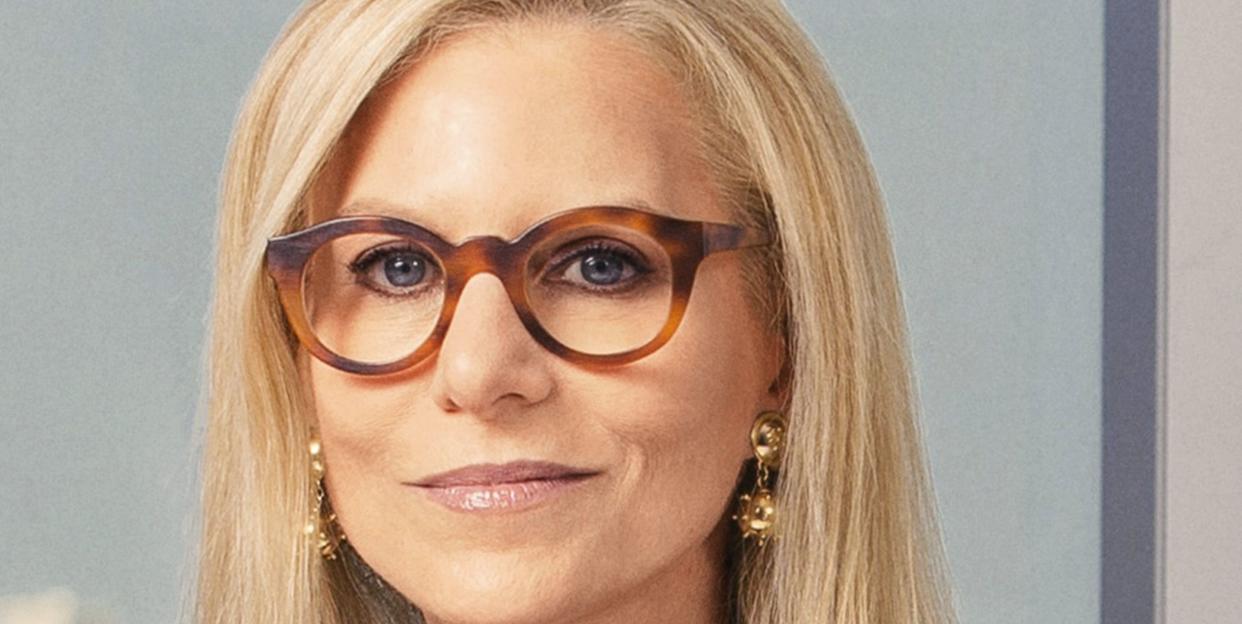Dawn Ostroff Has Always Been Ahead of Her Time

Dawn Ostroff had an early introduction to music—her father was a concert promoter who worked with Frank Sinatra, and she began her career in radio—so it felt like a fitting return when she became the chief content officer at Spotify, one of the music industry’s biggest game changers. She previously ran networks where she helped shows like Veronica Mars and Gossip Girl hit the airwaves, then jump-started Condé Nast’s foray into video, before landing at the Swedish streaming behemoth in 2018. Ostroff’s appointment made industry waves and signaled that Spotify was transitioning from a technology company into a media and entertainment empire.
“This company has shifted and changed the entire paradigm of the way the music industry works,” says Ostroff, sitting in her glassy corner office, the Statue of Liberty visible far below. “Now, in its 10-year maturity, Spotify is starting to pivot and be a content company.” Its biggest move came earlier this year with the reported $230 million acquisition of Gimlet Media, the company behind podcast success stories like Reply All, StartUp, and Crimetown. Spotify says it expects to invest up to $500 million in podcast-related acquisitions in 2019 and, on the content end, recently scored the ultimate get: It announced that the Obamas would partner with the company for a slate of exclusive podcasts.
Ostroff ’s career has been built on helping businesses triumph in new mediums. When she joined Lifetime as an SVP in programming, cable was just taking off; when she moved to Condé Nast in 2011, digital video had yet to explode. “I have teenagers, and they were like, ‘Why would you leave the CW and go to do digital video?’ It didn’t make sense to them,” she recalls. “Within a matter of two or three years, my kids were at the dinner table going, ‘Oh my God, did you see this video?’ ”
While the expanding podcast market is a well-trod sector, it’s largely been the domain of smaller, niche companies. Spotify’s status as the world’s largest streaming platform puts it in a unique position to become the primary podcast powerhouse. (As of June, Spotify had 108 million paying subscribers.) Ostroff, 59 and a mother of four, landed at Spotify at a time when the lack of women and people of color in executive ranks was coming under the microscope.
“There are a lot of things [in entertainment] that haven’t changed that are of great concern to me. Everything from how few women are in front of the camera, behind the camera, writing, directing, and producing, to how few women are in the music industry. The numbers are alarming,” she says. One of her post-college jobs was as an assistant at 20th Century Fox; there were virtually no women in the executive ranks. At one point when she was head of the CW, women ran four of the six broadcast networks. She expected that things would continue to improve and is dismayed to see they haven’t, but she’s working with Spotify on initiatives like the EQL Directory, a global database for female-identifying audio professionals. “Across the entertainment industry, and I think in other businesses, we really have to work hard to move the needle for women so that the next generation is not saying the same thing,” Ostroff says. “We just have to be frustrated enough to say, ‘This is the last generation that needs to think that way and say those things.’ ”
This article originally appeared in the October 2019 issue of ELLE.
You Might Also Like

